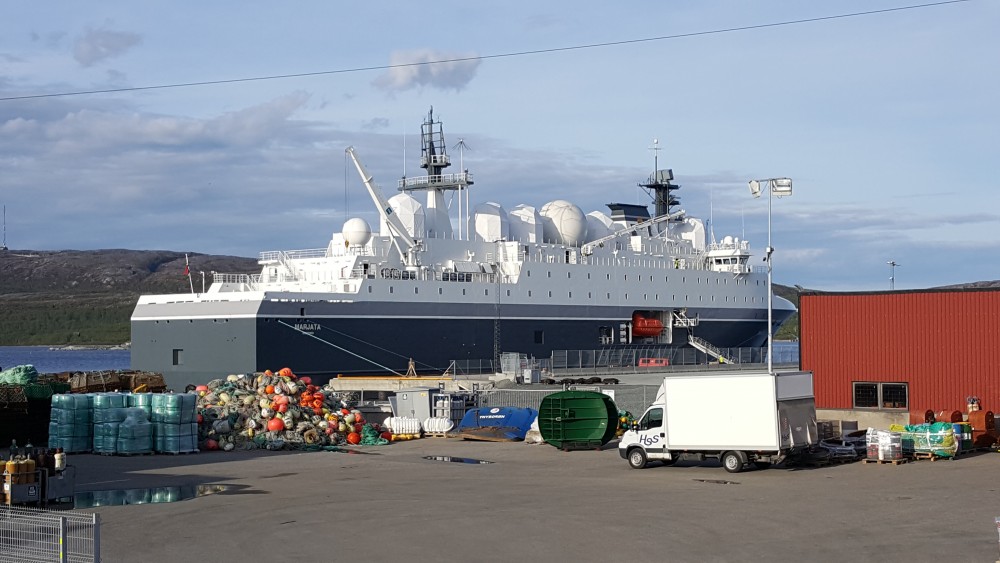Norway changes homeport for spy-ship, away from Russian border
The Marjata, long home-ported in Kirkenes, just a few kilometers from the border with Russia's heavily militarized Kola Peninsula, will now be based in Harstad.

Norway’s Ministry of Defense has confirmed that Harstad is the new official homeport for the intelligence ship Marjata, which until now has called at Kirkenes, near Norway’s border with Russia, for crew change and supplies.
“From next year the Intelligence Service moves the homeport to Harstad,” head of communication with the Ministry of Defense, Ingrid Dåsnes, writes in an op-ed published by AldriMer.no, a news site focusing on military and security.
The office organizing the crew will also be moved from Kirkenes to Harstad, Dåsnes writes.
Packed with radar and communication humps on the roof, the 125-meter-long new Marjata came to Kirkenes in spring 2016. The ship is the fourth in a row named Marjata with the aim to monitor Russian military activities in the Barents Sea region.
At the time of arrival to Kirkenes four years ago, the Norwegian Intelligence Service (NIS) told the Barents Observer that “Marjata will still have Kirkenes as home port.”
Last year, NIS, could no longer confirm that Kirkenes would continue to be home port for the ship. Kirkenes is less than 8 kilometers from the border to Russia’s militarized Kola Peninsula.
Over the last few years, the region of eastern Finnmark, and Kirkenes in particular, has been troubled by Russian jamming of GPS signals.
Already in 2017, NIS confirmed to the Barents Observer that other parts of its activities were to be moved away from Kirkenes to Vadsø, a small town across the Varanger fjord, further away from the Russian border.
Norway’s older military spy ship, now named Eger also makes port calls to Harstad. The ship is mainly operating in the Norwegian Sea where Russian submarine activities have increased in the latest years.